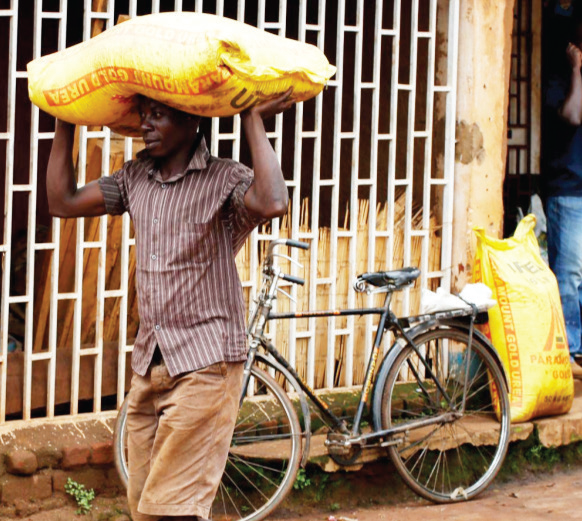New search for cheap fertiliser
As fertiliser prices grow wings, scientists have recoiled to their laboratories to figure out more affordable, effective and sustainable alternatives. Our Staff Writer SUZGO CHITETE writes.
Ronald Kamba, 47, has spent over half his lifetime farming.
This is how the man in Traditional Authority Mkanda in Mchinji has earned a living since he was 23.

This is notwithstanding the years he used to grow maize, groundnuts and other crops with parents and siblings.
“May be it’s time to think of doing something different,” says the father of six.
Scratching his forehead as if searching for a better reason not to call it quits, he adds: “Farming is no longer profitable given the costly inputs, especially fertiliser.”
The government subsidises fertiliser under the Affordable Inputs Programme in aid of maize farmers whose yield keeps falling due to breached soils, shrinking land size and climate change.
Now scientists from the Lilongwe University of Agriculture and Natural Resources (Luanar) have embarked on a study to expand alternatives for farmers who depend on chemical fertiliser.
The researchers are quite optimistic that the trials will offer farmers affordable organic fertiliser that is more effective and environmentally-friendly.
Lead researcher Dr Keston kanjira says the investigation focuses on microbial consortia-based , also known as inoculants.
“However, this time we are testing inoculants obtained by having a variety of effective soil microorganisms that do not only fix nitrogen but also make various nutrients such as phosphorus, potassium and zinc soluble in water for balanced plant nutrition,” he explains.
According to Kanjira, the existing inoculants that cost about K2 000 on the local market only contain a single nutrient—nitrogen. They are mostly used to boost soya, beans and groundnuts yields.
The study underway seeks to create inoculants that offer plants a diversity of nutrients.
The scientist states: “Our expectation is to find microbial combinations for biofertiliser that can lead to optimum crop yields for maize and various legumes.
“This can help farmers reduce the costs incurred on chemical fertilisers while also safeguarding the environment from pollution.”
Kanjira is one of Malawian academics funded to the tune of K22.5 million from the Science Granting Councils Initiative through the National Council for Science and Technology (NCST).
Their research project involves both laboratory experiments and field trials.
The researchers are collaborating with fellow academics from the National University of Science and Technology of Zimbabwe.
In Malawi, the project also involves the soil microbiology section at Chitedze Research Station in Lilongwe.
According to Kanjira, the scientists will conduct field trials more than once to ascertain the effectiveness of the inoculants on trial before releasing them to farmers.
“We are not worried with time because we want to produce a technology that will truly respond to needs of farmers affected by rising costs and environmental impacts of fertiliser,” he explains.
The investigators are using living things that can only be seen under a microscope to test the potential inoculants for balanced soils and to safeguard the ecosystem.
“This will not only be affordable, but also friendly to the environment” Kanjira states.
The study comes amid unprecedented spikes in fertiliser prices from about K20 000 to K50 000 within two years.
The cost of fertiliser has risen by 90 percent since 2020 despite the falling buying power due to economic disruption caused by Covid-19 and other global economic shifts, including the raging Russian invasion on Ukraine.
Spot checks show agro-dealers are selling a 50-kilogramme bag of Urea at K49 000 and CAN costs at K47 000. Super D is selling at K62 700 while Compound D fetches K52 700.
NCST director general Elijah Wanda says the research grant has propelled science, technology and innovation in Malawi.
“With continued support, Malawian scientists have potential to come up with life-changing innovations. We are glad that with SGCI grant, they are responding to challenges faced by the nation. The bio-fertiliser research is a timely intervention,” he observes.
About two decades ago, Parliament enacted a law that requires government to establish a standalone fund to support research and innovation.
However, the fund remained non-existent until February this year when government injected in K291 million.
Wanda believes this will go a long way to support interested researchers and innovators to come up with technologies that respond to Malawians’ needs.





